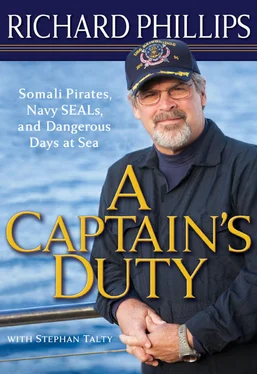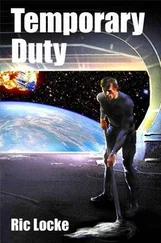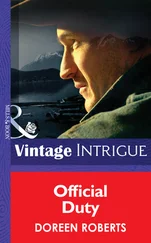Some of my tough-mindedness goes back to my paternal grandparents, I’m sure. They lived in the Fidelis Way projects in Brighton, which was a tough area then and still is today. They’d come over from County Cork and arrived in America just in time for the Depression. Those dark years had affected them deeply. My grandparents probably didn’t have that much more growing up in Ireland, but what amazed me was that they made everything and wasted nothing. They made their own soap and their own bread and their own curtains and they probably took a shot at making their own clothes at one point. I was one of eight kids, four girls and four boys, and my brothers and sisters used to hate going to Grandma and Grandpa Phillips’ house. There were no second helpings at dinner, so you’d better eat what you got because there wasn’t going to be anything else. I seldom saw my grandmother smile.
It’s funny. I never thought of it at the time, but seeing how hard my grandparents had worked just to survive must have sunk into my brain. They’d built a life from the scraps the world had given them. One thing that my family never lacked was a work ethic, and in them I saw where it had begun.
My mother was from West Roxbury, then a pretty well-to-do part of Boston. Her parents were both teachers and she brought to the family the belief that you get an education, no matter what. I wasn’t much of a student but at least she made me into a reader, someone always interested in improving himself. Beyond sticking my nose in a book every chance she got, my mother was the proverbial glue that held the family together. She was a warm and sympathetic person, curious about everything—if I had a problem, I went to her. Andrea says my father was the wind in the sails and my mother was the keel. She kept the family balanced. Without her, we would have been thrown to the sharks for sure.
My father was more typical of the Irish-American men of that time: he did things for you but he didn’t exactly smother you with affection. He was as tough as they come: six foot two and barrel-chested with the Phillips short legs and long torso. He was a big sports guy, having played football and basketball at Northeastern, where he met my mother. My father proved his love by going out and working like hell. You wanted that and a hug every night, too? Go talk to your mother.
Dad wasn’t a great communicator. I loved him but he was very hard to please. “Do it right, do it once, or don’t do it at all” was his motto, quickly followed by “you horse’s ass.” It seemed that no matter what I did, his response would be, “You can always do better.” That infuriated me at times. Yeah, but what about a little credit now for what I did right? I learned how to do things right from my dad. I wanted to prove myself to him, but I wanted to do it my way.
My dad believed that, when it came to us kids, the best defense is a good offense. In the mornings, he’d scream at us to get out of the single bathroom we all had to use. “You’re going to be late for school!” he’d yell in his deep, booming voice. We were so terrified we’d whittled our bathroom time to the absolute minimum. Then we’d grab our books, race out to the street, and meet our friends for the long walk to school. Two minutes later we’d see my father driving by. He worked at the very same school we were going to, but he’d never so much as turn his head as he passed.
My friends would say, “Hey, isn’t that your dad? Why isn’t he picking us up?”
“You don’t want to know” would be my answer.
It was like growing up with Vince Lombardi in a bad mood.
My philosophy was always a blend of my dad’s intensity and my mom’s caring. She took the edges off, but in many ways I’m just as tough-minded as he is. You can always do better. I hate to admit it, but the old man made his mark on me. With certain exceptions. My dad never once told me that he loved me or that he was proud of me (though I knew he did and that he was). I tell my kids I love them all the time. You learn what to inherit and what to leave behind.
I was a wise-guy kid. I’d meet teachers who on the first day would shake my hand and say, “Oh you have so much potential!” You don’t even know me, I thought. And even though everyone knew my parents as teachers, I didn’t go in for education very much. My dad taught business and math and served as the assistant football coach and the head basketball coach at the high school near our house and my mom taught fourth and sixth grade in Massachusetts and New Hampshire schools, but I was lurking near the bottom of every class, just doing enough to get by. For me, school was a place to ogle girls, play sports, and see my friends. Sort of like church, with sports.
Rebellion came naturally to me. I couldn’t fake an interest in things that didn’t interest me. Plus I knew I had other abilities: I was tough, I was a hard worker, and I knew how to learn.
But I always felt like I was a very lucky guy and life was going to take me to some interesting places. Even my teachers sensed that. One day, my French teacher, Doc Copeland, went around the room and said, “Joey, you’re going to make an excellent bricklayer. Mary, you’re going to be a housewife. Joanie, maybe an architect.” When he came to me, he stopped and said, “You’re going to do a lot of traveling.” I was happy with that.
Sports was the biggest thing in my life, growing up. I had three brothers, and I wanted to beat them at games just as much as they wanted to beat me. You competed against your friends at Bogues Court, the local basketball pit. Your street competed against the next street in games where the only fouls were the ones that drew blood. And your school lived or died by who won the big football game against your rival.
It was an atmosphere that bred a certain mental toughness. I learned about life, about leaders and followers, by playing sports. Hell, I learned everything by playing sports. One of my favorite athletes was Larry Bird, who was born average and made himself into a superstar athlete by sheer mental toughness. That’s something I respected.
I played football, basketball, and lacrosse in high school and I was just average in all of them. Sophomore year, I caught the football coach’s eye and he took an interest in me. Coach Manny Marshall would see me in the school hallways and he’d come up to me like I was on the verge of taking the team to the state championship. “Oh, how’re you feeling today? Drink plenty of milkshakes, you’ve got to put on more weight. Oh, you don’t have to go to gym, don’t worry about gym, I can take care of that. How you feeling? Feeling strong?” Junior year, I was out with mono and after years of being obsessed with sports, I realized there were other ways of having fun—namely, partying. But Coach Marshall still zeroed in on me every time he spotted me. “Don’t tell anyone else,” he’d say. “But you could be captain next year.”
I wasn’t good enough to be the captain. I hadn’t played all year. I didn’t deserve the title.
Coach Marshall expected me to fit his system, which required players to live and die by the score. He couldn’t understand the fact that I enjoyed myself whether we were winning or losing. “Why are you grinning?” he’d yell at me. “Because I’m having fun?” I’d answer. For him, football was a religion and if I was laughing with my friends when the team was losing, then I must be the Antichrist. I went from being his star prospect to riding the bench. I even quit the team before the final game of the season, against our archrival Woburn, just because the sport had stopped being fun. I watched the game as part of the band, where I played saxophone. I’d made the band leader deliriously happy: “It’s the first time someone’s told the football coach, ‘Sorry, I can’t play because I have to be in the band.’” Coach Marshall hated me after that.
Читать дальше












